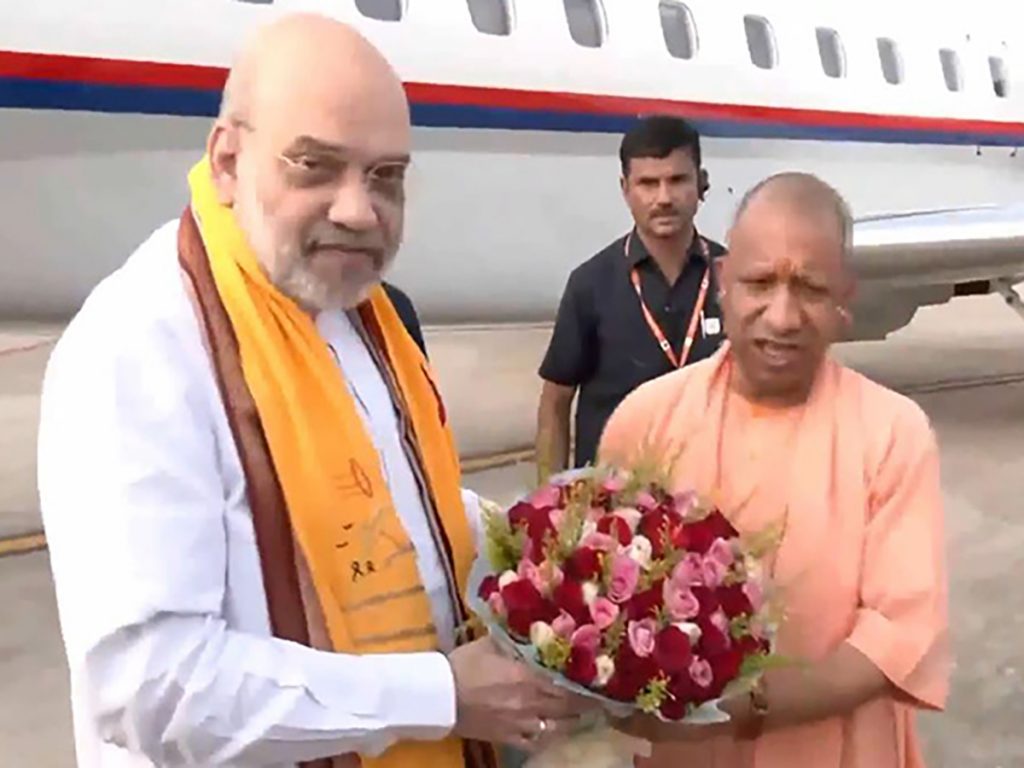Uttar Pradesh: Union Home Minister Amit Shah arrived in Varanasi on Monday evening, a day before he is scheduled to chair the 25th meeting of the Central Zonal Council on June 24.
The meeting, organised by the Inter-State Council Secretariat under the Ministry of Home Affairs in collaboration with the Government of Uttar Pradesh, will bring together key policymakers from the central and state governments.
The meeting will be attended by the Chief Ministers of the member states (Chhattisgarh, Madhya Pradesh, Uttarakhand, and Uttar Pradesh) and two senior ministers from each state.
Upon arriving at the airport, Amit Shah was welcomed by Chief Minister Yogi Adityanath and party leaders.
Meanwhile, Uttar Pradesh CM Yogi Adityanath welcomed Chhattisgarh Chief Minister Vishnu Deo Sai and Uttarakhand Chief Minister Pushkar Singh Dhami.
The Central Zonal Council comprises the states of Chhattisgarh, Madhya Pradesh, Uttarakhand, and Uttar Pradesh.
The meeting is being organised by the Inter-State Council Secretariat under the Ministry of Home Affairs in collaboration with the Uttar Pradesh government.
Under Sections 15 to 22 of the States Reorganisation Act, 1956, five Zonal Councils were established. The Union Home Minister is the chairperson of these five Zonal Councils, and the Chief Ministers, Lieutenant Governors and Administrators of the member states and Union Territories are their members.
Among these members, the Chief Minister of one member state (rotating every year) acts as the vice-chairperson. From each member state, the governor nominates two ministers as council members. Each Zonal Council has also formed a permanent committee at the level of the Chief Secretaries.
Issues proposed by the states are initially presented to the permanent committee of the concerned Zonal Council for discussion. After consideration by the permanent committee, the remaining issues are then presented to the Zonal Council meeting for further deliberation.
Prime Minister Narendra Modi has emphasised the need to leverage cooperative and competitive federalism for the country’s all-around development.
With the belief that strong states make a strong nation, the Zonal Councils provide a structured mechanism for dialogue and discussion on issues affecting two or more states or the Centre and states, and through this, serve as an important platform to enhance cooperation.
The role of the Zonal Councils is advisory; however, over the past few years, these councils have proven to be an important factor in promoting healthy bonds of mutual understanding and cooperation in various fields. With the cooperation of all state governments, central ministries, and departments, a total of 61 meetings of the various Zonal Councils and their permanent committees have been held in the last eleven years.
The Zonal Councils also discuss broad issues of national importance, including the speedy investigation of cases of sexual offenses against women and children and the implementation of Fast Track Special Courts (FTSC) for their swift disposal; providing brick-and-mortar banking facilities within the designated area of every village; implementation of the Emergency Response Support System (ERSS-112); and various regional-level common interest issues such as strengthening nutrition, education, health, electricity, urban planning, and the cooperative system.
